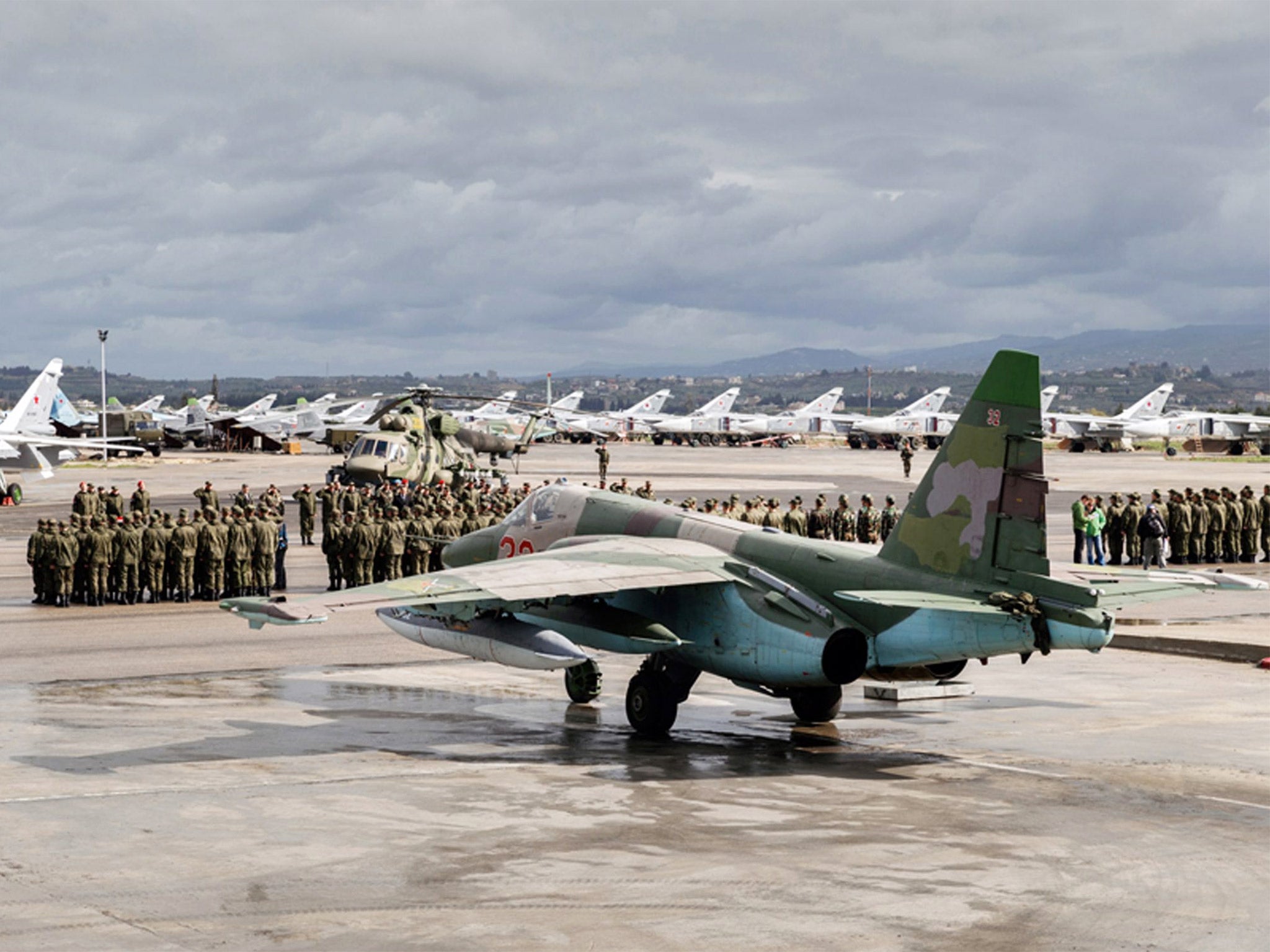Russian air strikes on Syria have driven out terrorists and helped start talks
With Russian air force support, Syrian troops have liberated 400 towns and more than 10,000 sq km of territory

Since the beginning of the military operation in Syria, Russia has carried out more than 9,000 flights, and for the first time, massive strikes with both air and sea-based cruise missiles.
As a result, Russia has managed to significantly hinder and, in some places, completely stop support for terrorists by intercepting oil trade, and blocking the main routes of weapons and ammunition deliveries from Turkey. Terrorists have been driven out of Latakia, land routes have been restored with Aleppo, Palmyra is under siege and combat actions are being continued to liberate it from terrorists.
Russia has helped to clear most of the provinces of Hama and Homs, unblock the Kweires air base, and establish control over oil and gas fields near Palmyra: as of now, three large fields have begun to operate steadily.
More than 2,000 criminals who came from Russia have been eliminated, including 17 field commanders. Our air force destroyed 209 facilities for producing, processing and transferring fuel, as well as 2,912 sources of petroleum product delivery.
With support from the Russian air force, Syrian troops have liberated 400 towns and more than 10,000 sq km of territory, to achieve a significant turning point in the fight against terrorism.
Russia’s naval base in Tartus and its air base at Hmeymim will function as before. This part of the Russian military group was located in Syria over the course of many years, and must continue to fulfil the vital function of monitoring the ceasefire and creating conditions for the peace process. There is monitoring of observance of the ceasefire; a fairly large number of drones – more than 70 – are being used for this purpose, as are all means of intelligence gathering, including electronic intelligence and our satellite group in space.
Russia has consistently advocated establishing an intra-Syrian dialogue. Our suggestions were met with a lack of will on the part of all our partners working on this process. But since the start of our military operation the situation began to change.
The initial steps were gradually taken, first based on President Vladimir Putin’s talks with Barack Obama: the Russian-American group began to prepare a broader process for external support for intra-Syrian talks. An international group of support for Syria has been created, which included all the key players, including regional powers.
Intra-Syrian talks between the government and delegations of multiple opposition groups have finally been launched in Geneva. The work is difficult and we have yet to see how all these groups can gather at one table. For now, UN representatives are working separately with each of them, but the process has begun, and it is in our common interest to make it sustainable and irreversible.
Now that Russia withdraws the main part of its military in Syria, the burden of proof and responsibility to deliver is on all the participants of the Syrian peace process and all the outside players.
Alexander Yakovenko is Russia’s ambassador to Britain
Join our commenting forum
Join thought-provoking conversations, follow other Independent readers and see their replies
Comments